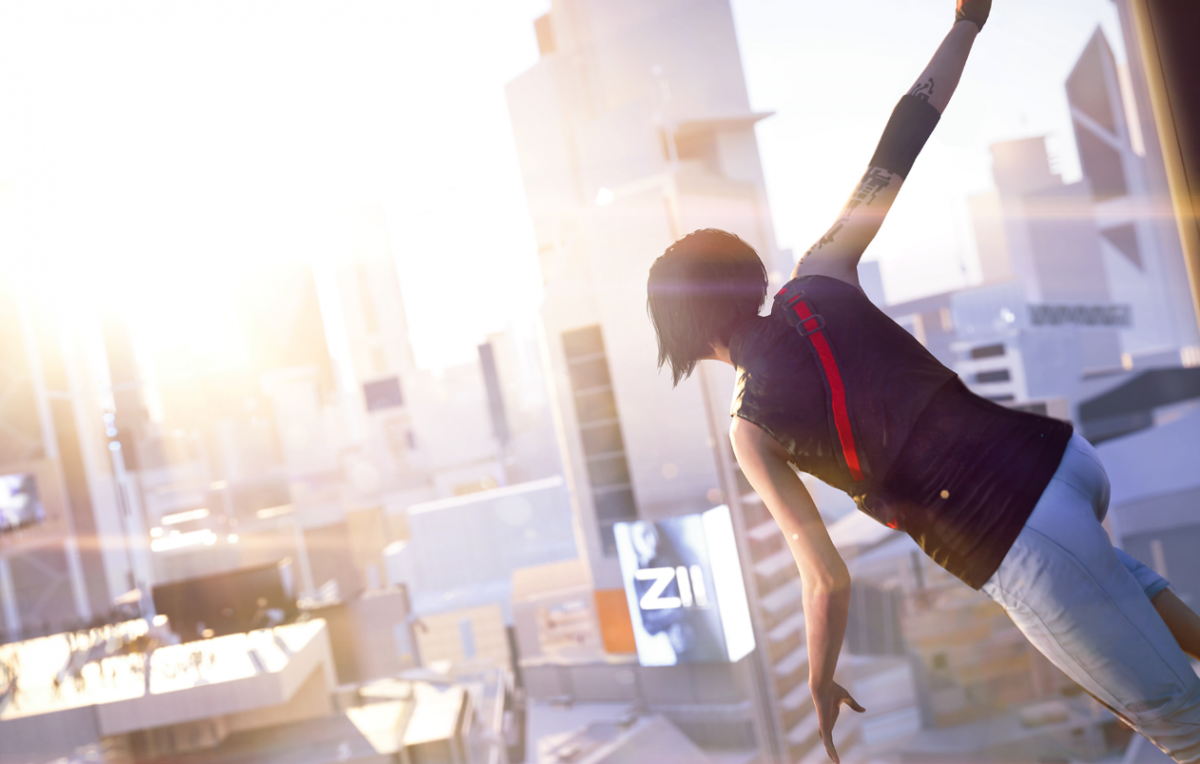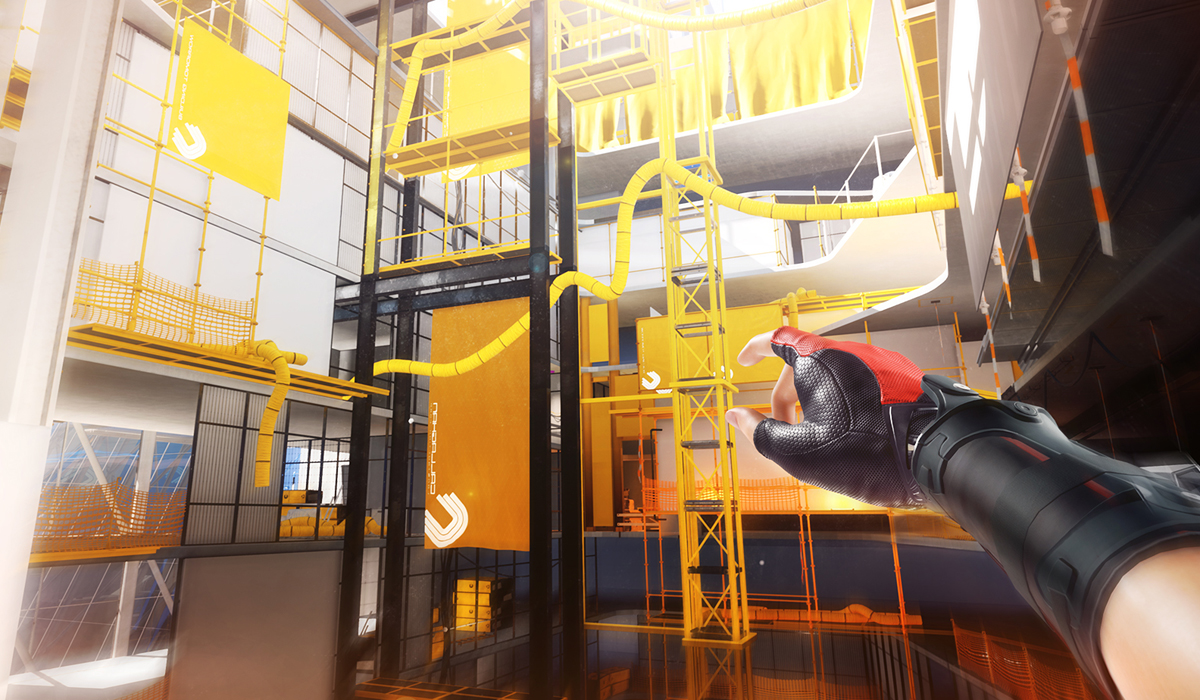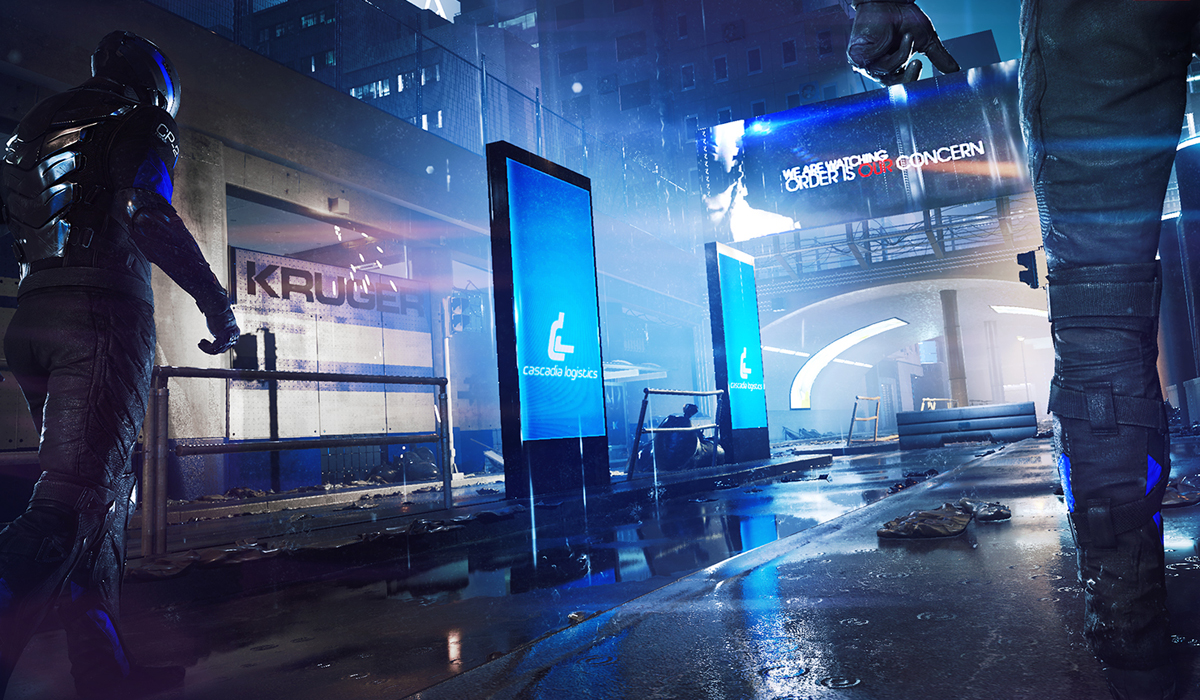Mirror's Edge Catalyst Review: EA DICE's graceful action adventure suffers from a case of the Ubisofts
Mirror's Edge Catalyst
Platforms: PC (tested), PS4, Xbox One
Developer: DICE
Publisher: EA
Release Date: 9 June
Mirror's Edge Catalyst has serious style. The City of Glass, the supposed utopia where the game takes place, is beautiful, and colour coded for your convenience. Red is good, the colour of the runners and the player's "runner vision", which points out optimal routes through the city, shading items when you should be scrambling over them. Blue is bad, the colour of the KSec, the faceless guards you'll be kicking and punching your way through as you pirouette around the city.
The City of Glass is an open world, and putting Mirror's Edge into an open setting proves both a blessing and a curse. It's a blessing in that you can choose your own routes, but a curse because, as the developers at DICE need to create routes that work in a variety of ways, they're not always as tight as in the original game.
That original launched in 2008, becoming something of a cult classic but never quite the success DICE and publisher EA would have hoped. It was bright, stark and bold – a video game about free-running and balletic traversal, not pumping people full of lead. Eight years on, a follow-up finally arrives. Neither sequel nor prequel, Catalyst wipes the slate clean in the hope that now is the time Mirror's Edge can find blockbuster success.
The biggest problem with Mirror's Edge Catalyst is how, in its jump to an open world, it has contracted a serious case of the Ubisofts. DICE clearly thought, what with all the extra space afforded to them, that Catalyst needed a healthy sprinkling of collectibles and upgrades. Most of Faith's abilities from the original game, like the roll to land safely or the ability to turn 180 while wall-running have been stripped from her so they can be sold back to the player (with in-game experience points I should add) as upgrades. Then there are items like the grappling hook, which offers new routes and new options, but make it harder to "read" the correct path as you're dashing around the city.
It's a shame, because the breakneck sense of momentum from the original game is still here, it's just that it's hidden away behind a web of unlocks that is far too frugal if you don't want to spend your time completing side-quests, like delivering packages and racing around rooftops, to try and keep yourself ahead of the curve. If you're just playing the storyline, you'll always have the bare minimum you need to succeed, but may find it a little tougher.




Much of the impact from this lack of upgrades can be felt in the combat. The player has a series of momentum attacks that do less damage but will stun the enemy enough that you can run past. Players can also kick enemies into each other to stagger them, or just straight up kick them off a building. This is controlled by mashing a button while moving in a certain direction, allowing you to sweep an enemy's legs or hit them across the back. The combat flows much better than it did in the original, and it's often a joy rather than a pain, but once again a frustrating amount of Faith's moves are locked behind the upgrade system.
I find myself conflicted about Catalyst not because of the game itself, which is well put together and a lot of fun, but because of what it could have been. It's when you stop running, the flaws of the game are most apparent.
The story feels like it belongs on the reject pile of a Hollywood studio in the mid-90s. Catalyst begins with protagonist Faith – who it seems all involved have a lot of... erm, confidence in – finishing a stint in prison. As she's leaving she encounters a guy that doesn't like her, but begrudgingly comes to accept her skills, a former best friend, a mysterious elderly mentor, and a long-suffering boss who only wants what's best for her.
There's also a particular character worth pointing out. Called Plastic, the character represents the worst depiction of the autistic spectrum I've ever seen in a game. She's a mess of autism tropes mashed together for the player to chuckle at and, while at first I thought it was cool they were trying to be a bit more inclusive, I found myself, as someone on the autistic spectrum, mostly bristling at being used as a punchline.
If you loved the original Mirror's Edge, or enjoy the concept of free-running around a beautiful city without the fear of falling off a skyscraper or crotching yourself on a railing, Catalyst is most definitely right up your alley. As an open world adventure game however, it has some way to go. There are too many elements in the mix, and not all of them pan out.
For all the latest video game news follow us on Twitter @IBTGamesUK
© Copyright IBTimes 2025. All rights reserved.






















